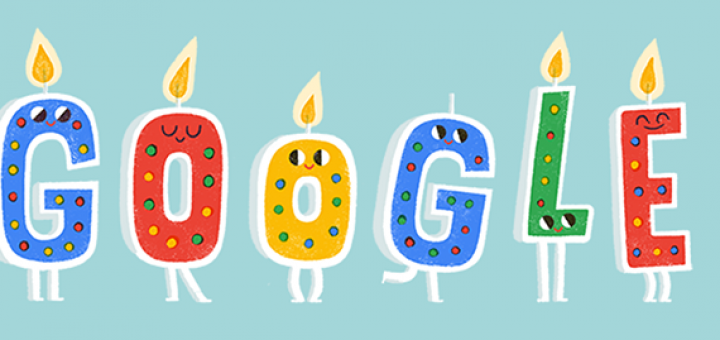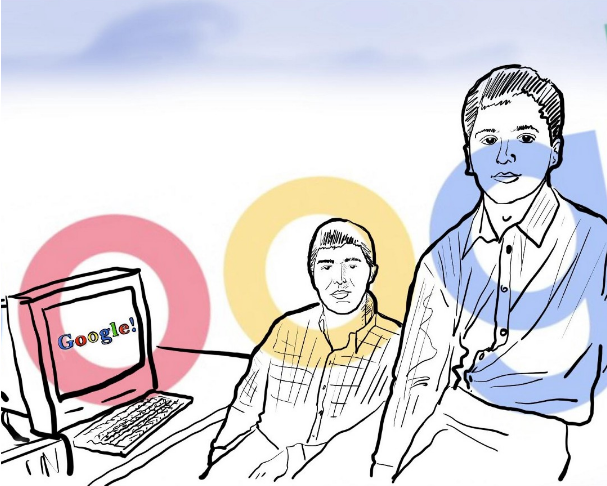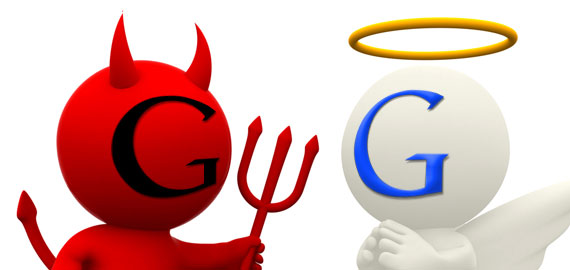At the end of its twenty years of existence, Google has completely changed our thinking …

Original material
Technology changes quickly, but only a few products, services or companies have been able to move to the market and rebuild them in their own image as quickly and fully as Google did.
In 1998, Google wandered into the popular 'club' of prim web search engines. Some of them – Northern Lights, Alta Vista and Yahoo – have been established leaders. Each had a different approach to indexing a rapidly growing web, with branches and spiders. And each had millions of loyal users. Without them, many of us would not know how to find something on the spaces of the World Wide Web. In less than a year, Google has been ranked as one of the best on the Internet. He was praised for his unique ability to produce satisfactory results. In 1999, two years after Larry Page and Sergey Brin founded the company, PC Magazine thought it was “going to be a success.”

By the fifth year, the name Google became a household name and became a verb, as I noted in the text by writing 'I search, therefore I google'. All the web search engines mentioned at this point have either left the 'club' or just headed out, essentially leaving Google alone. Yes, rumored to have shown interest in buying a fledgling company Microsoft created Bing, a unique search engine project that managed to capture 24% of the US search market. Well, for the better part of a decade. Google systematically crushed other existing search options until it became nearly impossible to imagine search without the company's product. But everyone knows this story. I'm more interested in everything we've learned from Google's phenomenal takeoff.
The limitless power of information
I think that without Google, we would be able to truly understand the enormous power and potential of information. While other search engines understood hundreds of millions of pages of information on the Internet, Google saw a different dimension.
From the very beginning, Google was equally concerned about the content of each page and the relationship of these pages with each other. The company understood that the textual index of information on a web page is just a flat projection of the information and meaning hidden in it. Google's algorithm 'learned' the structure of each page and inferred from the page formatting. For example, if a web developer placed something at the top of the page, this meant that the information was more important (and should take precedence over information at the bottom of this page). Google also used the heading size, often set via HTML settings H1, H2, or H3, to display relative importance.

External links were also important to Google in the context of page information. The company created its own PageRank algorithm, which analyzed the links to each web page in order to determine its reputation. The more the links to your page mattered, the more relevant it was, according to Google. The algorithm has received a fair amount of criticism. Everyone who knew how to use search optimization used it with all their hearts. By 2003, the Google Watch website was created, dedicated to tracking Google Search and often criticizing the way the service 'sees' and uses the growing amount of information from the web.
It is worth remembering, though, that our current attitudes toward information and the way it is filling the growing AI sector were shaped in part by how Google perceived the web. Her unique understanding of information is at the heart of virtually all of the company's activities. Over time, web search has moved towards a more powerful contextual knowledge graph. Looking at it now, I understand that this shift was the moment when the importance of the algorithm surpassed the importance of the information itself.
Alchemy of the algorithm
Apparently, the use of algorithms gaining power was not so much a necessity, but rather a strategy for Google. The company's goal – to organize global information and make it universally accessible and useful – may have sounded great in 1998, 1999, and 2000, but I'm sure it has become intimidating over the years.
Google timely stopped treating words on web pages as isolated. PageRank and Signals propelled Google far, but the modern internet needed more. Google began to associate words and, over time, meanings. The company began to apply powerful algorithms to these connections. Of course, early artificial intelligence helped Google understand the meaning of words and build relationships in real time.
The way other companies deal with information now, in my opinion, is largely inspired by the work of Google since the company was founded. The Facebook approach to information on its closed network (which can still be found through Google) owes its origins to Google. Think of 'people' as units and all the relationships that Facebook gets to know each day through the information we give. This is not very different from the relationships we build on the site. Google is constantly reworking, indexing and accurately reflecting existing relationships based on what algorithms and AI can glean bit by bit.
On the side of evil?
In that era, Google's need to 'not be evil' was not some kind of prophetic spell against an inevitable future. I think Brin and Page wrote this informal motto (and then abandoned it) because they didn't want to be like the companies that preceded them. Remember, Google's rise coincided with antitrust lawsuits Microsoft around Windows and Internet Explorer. I don't think it was all about Microsoft. In the late nineties, most tech companies were considered powerful. They often left consumers alone with incomprehensible interfaces and terrible technical support.

Google Tools did not appear on computers by themselves. The company won the search battle because its product (free if anything) was better than any other product on the market. It is hard to imagine that such a systematic approach would ever be considered evil. But in order to gain a leadership position, grow and maintain it, Google could not turn off the collection of information. In fact, she had to shift her focus from the PC to all sorts of ways to share our information, which we have been using over the years since the launch of the search engine. This meant that Google would soon understand how and what we email, what news we read and think is important, how we shop, where and how we travel, and even how we manage our home.
Once they did, our vision for Google changed. We cannot trust what is watching us, even if only through digital algorithms, and uses the obtained data as a support for targeted advertising. I personally know people who fundamentally won't use anything from Google. They are still in the minority. But this does not mean that Google is not in danger of becoming or gaining the image of an evil corporation. When the US Congress brought Twitter and Facebook and Facebook to justice for foreign interference in the 2016 elections ahead of the summer Senate committee meeting, the issue that plagued privacy concerns was never Google. From Google's perspective, this did not look very good, given the company's image as the progenitor of many modern information practices used by many prominent technology companies today.
As it moves into its third decade of history, Google cannot afford to ignore public perceptions of its understanding of tracking information and consumption policies. Google won by being the best. To move forward, the company will have to google what it means today.
By Lance Ulanoff
I could not pass by such a milestone. 20 years on the scale of technology is a lot, especially when it comes to global coverage. Good Corporation has outlived many of its competitors in many areas, withstanding opposition and releasing decent services and software. Not every company is destined to go from a dark horse to an Internet giant of the level of a Mountain View company, and in this we are lucky that we can witness this evolution firsthand. And Android is just one of the branches of the company's product development. My first memory of Google comes from a computer science class at school, when a teacher instructed me to find something and write a story about it in a text editor. So I got acquainted with the search engine and later on my first PC I mastered other services of the company. In a word, Google has always been somewhere nearby.
For services and software, we do not notice how Google and similar services are changing our thinking and cognitive scenarios, someone will not attach importance to this, but experts already note the difference in the features of the brain 'before and after'. It is difficult to say whether this is good or bad, but this is the reality. What does the future hold for us? Can Google keep pace with today's challenges? I would like to wish the 'hero of the day' to at least bring the Pixel line to an even more worthy level, as it seems to me, there are all the prerequisites for this.
